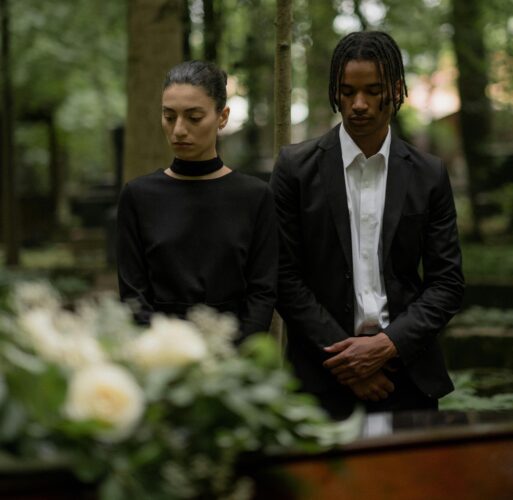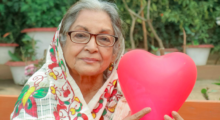
-
- Death doulas offer emotional and practical support to both the dying and their loved ones.
- Credit: Alexander Grey
The title “death doula” may still be a novel term for many people. But these death midwives, as they are sometimes described, are growing in number and acceptance as more people discover their value in navigating end-of-life challenges.
As the Cleveland Clinic defines it, a death doula — also known as an end-of-life doula, end-of-life coach, or death coach — assists a dying person and their loved ones before, during and after death. They provide emotional and physical support, as well as education about the dying process.
The term “doula,” which has been used since the mid-1970s to describe a birth midwife, was first applied to someone providing end-of-life support around 2000. Henry Fersko-Weiss is credited with creating the first end-of-life doula program in the United States at a New York City hospice in 2003. He later became a co-founder of the International End of Life Doula Association (INELDA), one of a handful of organizations formed in the past 15 years to train and promote death doulas. The National End-of-Life Doula Alliance (NEDA), formed in 2017, also plays a key role in educating death doulas as well as advocating for broader integration of doulas into end-of-life care.
Training provided by these associations typically includes how to help the dying cope with end-of-life anxiety, how to plan their funeral, how to wrap up their worldly affairs, and how to help loved ones process the impending death, including young children experiencing the loss of a parent or grandparent.
Death doulas are there to serve the desires of their clients, whether they want a hospice setting and a traditional funeral and burial, or express interest in other options that are gaining popularity. For example, death doula Shelby Kirllin, a program development manager for INELDA, told the San Antonio Express that she sees the rising awareness of doulas as part of a “death positive movement,” where families are returning to the tradition of supporting their dying loved ones at home and engaging with death on a more personal level.

Death doulas help ease the grieving process for family members.
Credit: cottonbro studio
“In the last 100-plus years in our Western culture, that has been taken away from us,” said Kirillin, who is an end-of-life doula in Richmond, Virginia. “How to be with someone who was dying, how to touch them. That was something that we knew how to do.”
Dying at home can also extend to funerals at home, a possibility that many people probably haven’t considered. But as the California doula service Full Circle of Living and Dying states on its website, “Keeping or bringing a loved one home after death is legal in every state for bathing, dressing, private viewing and ceremony as the family chooses.”
Making clients aware of this option to a traditional funeral sparked a reaction from the California Cemetery and Funeral Bureau in 2019. The Bureau sought to block Full Circle of Living and Dying from operating unless its owners became funeral directors, which was an extremely costly undertaking and had nothing to do with the services they provided. The non-profit’s founders Amber Hill and Akhila Murphy sued for the right to operate as a doula service and won in 2023, setting a nationwide precedent.
While the death doula role was created to serve clients who are in the process of dying, Alua Arthur, founder of Going with Grace, encourages everyone to spend time thinking about their death, no matter where they’re at in their adult life.
“When I’m thinking about my present life from the vantage point of my graceful death, I can see very clearly who I want to be, how I want to spend my time, and what of me I’ll leave behind,” she said in a 2023 Ted Talks presentation. “It allows me to consciously curate my life right now. And also figure out my little whys right now. So, what are we waiting for anyway? Death?”
Perhaps the value of the death doula role was best summed up by Nancy English, an assistant professor who teaches palliative care at the University of Colorado Anschutz Medical Campus. “We need to look at death as important as birth, it’s a transition from one state to another,” she told the Associated Press. “We know it’s a major transition, even if we don’t know what’s next. The death doula helps us make it more sacred.”

 Death Doulas Are Gaining in Popularity
Death Doulas Are Gaining in Popularity


 The Healing Sound of Singing Bowls
The Healing Sound of Singing Bowls
 “Summons” by Aurora Levins Morales
“Summons” by Aurora Levins Morales
 How To Dispose of a Body In Space
How To Dispose of a Body In Space














